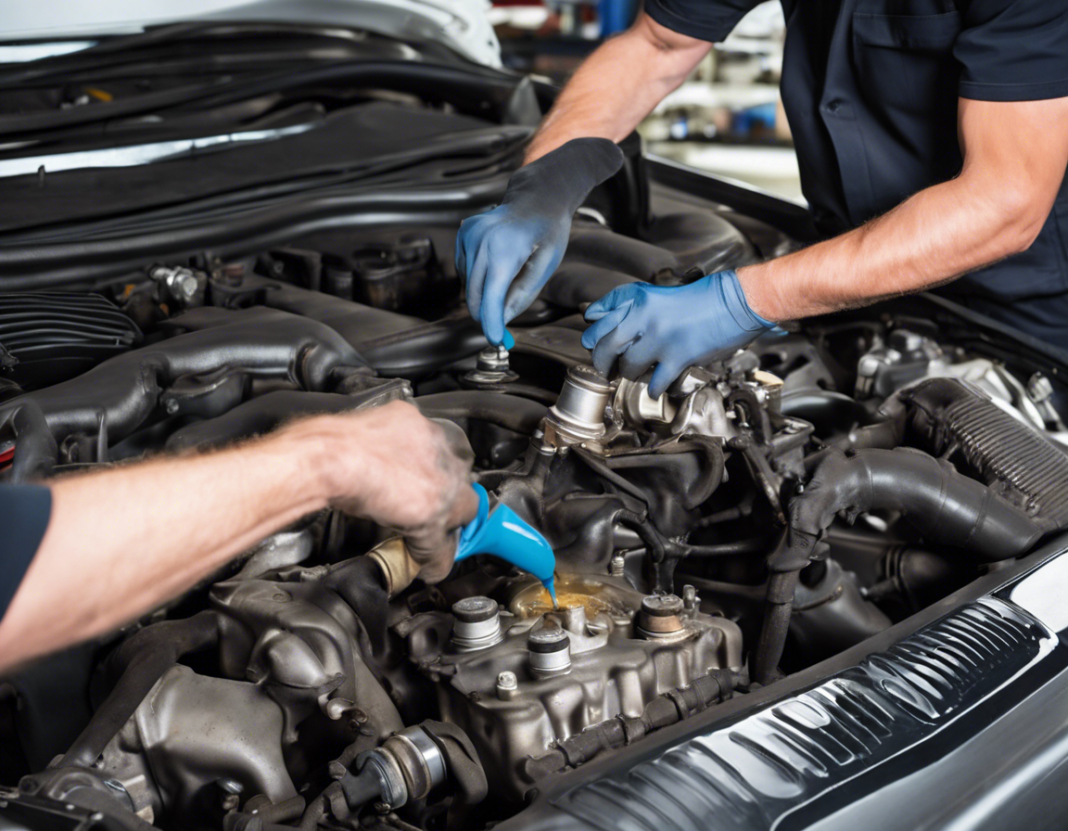Identifying an Engine Oil Leak
Detecting and confirming an oil leak:
Engine oil leaks can be identified through visual inspection. Look for oil spots under your vehicle, a burning smell when driving, or a sudden drop in oil levels on the dipstick.
Common Causes of Engine Oil Leaks:
– Worn gaskets or seals: Over time, gaskets and seals can degrade, leading to leaks.
– Loose or damaged oil filter: A loose or damaged oil filter can cause oil to leak.
– Cracked oil pan: A cracked oil pan can result from hitting debris on the road or corrosion.
– Degraded oil cooler lines: These lines can wear out and develop leaks over time.
– Faulty valve cover gasket: A faulty valve cover gasket can cause oil to leak onto the engine.
Effects of Ignoring an Oil Leak:
Ignoring an oil leak can lead to low oil levels, which can damage the engine over time. It can also pose a safety hazard if the leaking oil drips onto hot engine components, potentially causing a fire.
Repairing an Engine Oil Leak
Cost of Repair:
The cost to repair an engine oil leak can vary depending on the cause of the leak and the extent of the damage. On average, repair costs can range from $150 to $1200. Factors that can influence the cost include the location of the leak, the type of repair needed, and labor costs.
Types of Repairs:
– Replacing gaskets and seals: This is a common fix for oil leaks caused by worn gaskets or seals.
– Repairing or replacing the oil pan: If the oil pan is cracked, it may need to be repaired or replaced.
– Fixing or replacing oil cooler lines: Damaged oil cooler lines may need to be repaired or replaced.
– Replacing the valve cover gasket: A faulty valve cover gasket can be replaced to stop leaks.
DIY vs. Professional Repair:
While some minor leaks can be repaired at home by experienced DIYers, it’s often best to have oil leaks repaired by a professional mechanic. Professional mechanics have the expertise and tools to properly diagnose and repair the issue, reducing the risk of further damage.
Frequently Asked Questions (FAQs)
1. How do I know if I have an engine oil leak?
– Look for oil spots under your vehicle, a burning smell, or a sudden drop in oil levels on the dipstick.
2. Is it safe to continue driving with an oil leak?
– It’s not recommended as low oil levels can damage the engine and pose a safety risk.
3. Can I fix an oil leak myself?
– Some minor leaks can be repaired by experienced DIYers, but it’s best to have a professional mechanic diagnose and repair the issue.
4. How long does it take to repair an engine oil leak?
– The repair time can vary depending on the cause and extent of the leak, but it typically takes a few hours to a day.
5. Can an engine oil leak be prevented?
– Regular maintenance checks, such as oil changes and inspections, can help prevent oil leaks by identifying and addressing potential issues early.
6. Will an engine oil leak affect my vehicle’s performance?
– Yes, an oil leak can lead to low oil levels, which can affect engine performance and potentially cause damage over time.
7. What should I do if I notice an oil leak?
– If you notice an oil leak, it’s important to have it inspected and repaired as soon as possible to prevent further damage to your engine.
8. How often should I check for engine oil leaks?
– It’s a good practice to check for oil leaks during regular maintenance checks or whenever you notice signs of a leak, such as oil spots under your vehicle.
9. Can an engine oil leak be fixed temporarily?
– While temporary fixes like using stop-leak additives are available, it’s best to have the leak properly repaired to ensure long-term reliability.
10. What should I do if I can’t afford immediate repairs for an oil leak?
– If immediate repairs are not possible, consider topping up the oil levels regularly and driving with caution until you can have the issue fixed by a professional mechanic.


